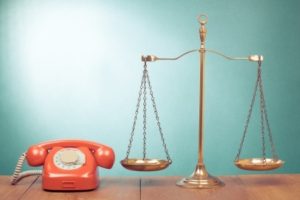 Here, the municipal court had jurisdiction to resolve defendant’s disorderly-persons charge pursuant to N.J.S.A. 2B:12-17, and failure to join does not automatically bar subsequent prosecution. For judicial efficiency and fairness to defendants, the Court urges careful coordination between the municipal courts and county prosecutors. As a matter of fundamental fairness, the defendant should have at least been given the opportunity to withdraw his municipal court plea.
Here, the municipal court had jurisdiction to resolve defendant’s disorderly-persons charge pursuant to N.J.S.A. 2B:12-17, and failure to join does not automatically bar subsequent prosecution. For judicial efficiency and fairness to defendants, the Court urges careful coordination between the municipal courts and county prosecutors. As a matter of fundamental fairness, the defendant should have at least been given the opportunity to withdraw his municipal court plea.
The Court has consistently interpreted the State Constitution’s double-jeopardy protection as coextensive with the guarantee of the federal Constitution. A prime concern when reviewing a double-jeopardy claim is whether the second prosecution is for the same offense involved in the first.
The United States Supreme Court first announced its test for determining whether a second prosecution is for the same offense in Blockburger, supra, 284 U.S. at 304: If each statute at issue requires proof of an element that the other does not, they do not constitute the same offense and a second prosecution may proceed. This has come to be known as the same-elements test.
The Court read the language in Illinois v. Vitale, 447 U.S. 410, 421 (1980), as creating an alternative to Blockburger’s same-elements test—the same-evidence test. The United States Supreme Court reached the same conclusion in Grady v. Corbin, 495 U.S. 508, 510 (1990), but revised its position in United States v. Dixon, 509 U.S. 688, 704, 708-09 (1993), in which it deemed the same-evidence test unworkable and reinstated the Blockburger same-elements test as the sole measure of whether two offenses constitute the same offense.
Since Dixon, the majority of states have similarly ruled that the Blockburger same-elements test sets forth the proper test for determining whether two charges are the same offense. Until this case, the Court has not had occasion to reevaluate double-jeopardy jurisprudence in light of Dixon’s return to the same-elements test. As a result, appellate panels have split over whether the same-evidence test still applies in New Jersey.
